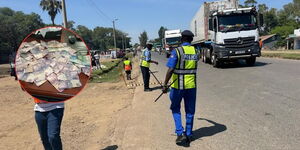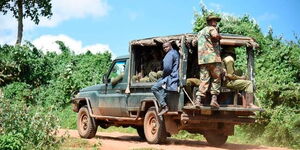Learning in schools could soon be paralysed after teachers threatened to down tools if the government pushes through with a proposed plan to cut hardship allowances.
Speaking in Kajiado, Kenya Union of Post Primary Education Teachers (KUPPET) and the Kenya National Union of Teachers (KNUT) teachers Kajiado branch have revealed that if the government pushes through with the plan, they would initiate a national strike, affecting learning that has just entered term two.
''It seems these leaders make decisions in Nairobi without considering the hardships in other regions. As KNUT, we are ordering that the hardship allowance remain, or else we will down tools here in Kajiado and extend the strike to the whole country," KNUT Secretary General Kajiado Branch Ely Korinko threatened.
Prime Cabinet Secretary Musalia Mudavadi revealed that the government would begin cutting hardship allowances paid to thousands of civil servants after approving a long-delayed review of regions classified as hardship areas.
Appearing in Parliament, Mudavadi told the MPs that this move would save the government Ksh6 billion yearly.
“I wish to inform the House that the implementation of the Inter-Agency Technical Committee report will reduce the financial implication for payment of hardship allowances from Ksh25 billion to Ksh19 billion per annum, thereby making a Ksh6 billion saving by the government,” he said.
The teachers argue that many areas in Kajiado and other hardship regions face significant challenges, including transportation difficulties, wildlife attacks, and water shortages.
The removal of these hardship funds is expected to severely impact teachers, making their daily struggles even more difficult.
'Hardship allowance has been very sentimental in ensuring we offer quality education to students. We face many challenges, including communication, a bad working environment, and a lack of electricity, and these funds have helped solve them; that's why we are ordering that it remain," said Zadock Kisienya, Secretary-General of the KUPPET Kajiado branch.
Teachers argue that if the government insists on scrapping the allowance, then it should offer an accommodation allowance for educators in hardship areas, similar to what is provided to teachers in Nairobi.
The teachers who have remained adamant in opposing Mudavadi's proposal termed it as an overreach, adding that there was no public participation or consultation with the teachers set to be adversely affected.
Hardship allowances were introduced in 1969 to support officers working in remote and hardship areas. These are regions that lack basic services like food, water, transport, communication, and health.












